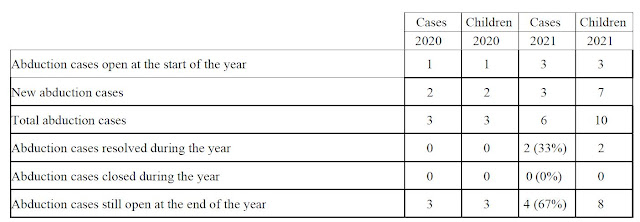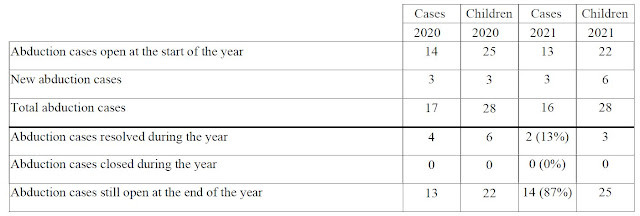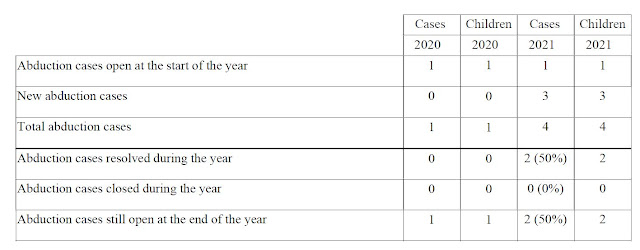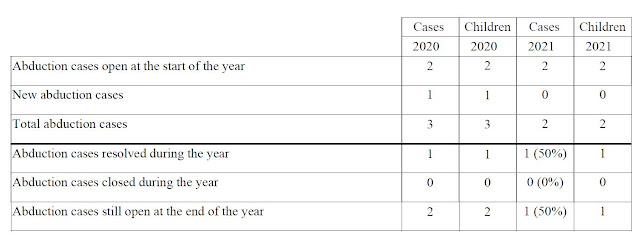Country Summary: The Convention has been in force between the United States and Honduras
since 1994. In 2021, Honduras demonstrated a pattern of noncompliance. Specifically, the
Honduran Central Authority regularly failed to fulfill its responsibilities pursuant to the
Convention. Additionally, Honduran law enforcement regularly failed to enforce a return order
rendered by the judicial authority in an abduction case. As a result of this failure, 20 percent of
requests for the return of abducted children under the Convention remained unresolved for more
than 12 months. The sole case affected was unresolved for over one year. Honduras was
previously citied for demonstrating a pattern of non-compliance in the 2015 and 2016 Annual
Reports.
Initial Inquiries: In 2021, the Department received three initial inquiries from parents regarding
possible abductions to Honduras for which no completed applications were submitted to the
Department.
Central Authority: There have been delays in the processing of cases by the Honduran Central
Authority, which contributed to a pattern of non-compliance. In the majority of cases pending in
2021, the Honduran Central Authority failed to take all appropriate steps to facilitate the
institution of judicial proceedings in a timely manner, which resulted in significant delays.
Location: The competent authorities regularly took appropriate steps to locate children after a
Convention application was filed. The average time to locate a child was 42 days.
Judicial Authorities: Delays by the Honduran judicial authorities impacted cases during 2021.
Enforcement: Judicial decisions in Convention cases in Honduras were generally not enforced,
which contributed to a pattern of noncompliance. One case (accounting for 100 percent of the
unresolved cases) has been pending for more than 12 months in which law enforcement failed to
enforce a return order.
Access: In 2021, the U.S. Central Authority had one open access case involving one child under
the Convention in Honduras. This case was opened in 2019 and has been filed with the
Honduran Central Authority. No new cases were filed in 2021. By December 31, 2021, this
case had been resolved.
Department Recommendations: The Department will continue intense engagement with
the Honduran authorities to address issues of concern.




















